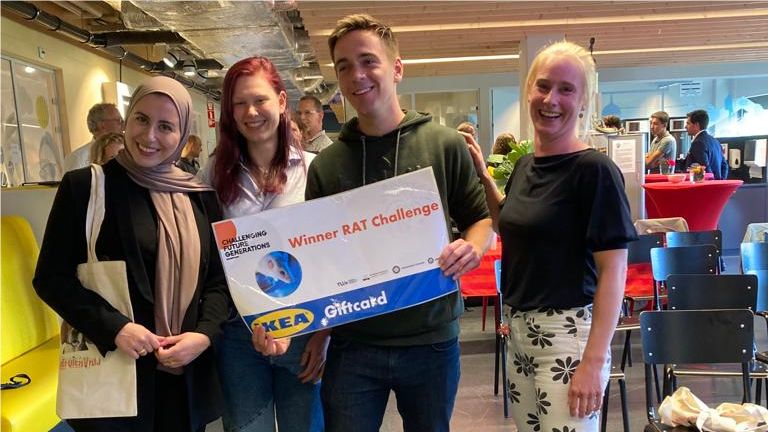Is it necessary to use animals for our products and medical safety testing, or can we do without? What would our supermarket and health care system look like if we stopped animal testing today? With these questions, a group of students and professionals went to work in a multidisciplinary context. Together they searched for solutions to the complex problem of animal testing.
The winning team, consisting of Susan Ayada, Maria Grisnich, Talita van Hartskamp, Elena Oudesluys and Jaap Tump investigated a specific non-animal testing method, the Monocyte Activation Test. This test uses human cells to determine whether certain substances are antipyretic. This test replaces the use of guinea pigs to examine these substances. The team investigated how this test was developed, from its invention to its acceptance, to see how it could serve as an example for other non-animal methods.

Social Partner
Bachelor, Master and HBO students, together with professionals (doctors, veterinarians, biologists, managers) have been working on issues related to animal testing. Here they worked together with social partners on actual problems from business or society. Proefdiervrij was connected as a social partner to this challenge. Director and jury member Debby Weijers: ‘I feel honored that I was in the jury during the finals of the Replacing Animal Testing challenge last Friday. What great winners we had! The winning project provides a great example of how to validate and implement non-animal testing methods.’
Challenge Based Learning
Jaap, Veterinary Medicine student University Urecht; ‘The interdiciplinary of this challenge appealed to me. My world became much wider through contact with other students from other programs.’ The partnership between the four institutions stimulates new innovative forms of education, such as Challenge Based Learning. Here students from different disciplines work with each other and with social partners on actual problems from business or society.
Is it necessary to use animals for our products and medical safety testing, or can we do without? What would our supermarket and health care system look like if we stopped animal testing today? With these questions, a group of students and professionals went to work in a multidisciplinary context. Together they searched for solutions to the complex problem of animal testing.